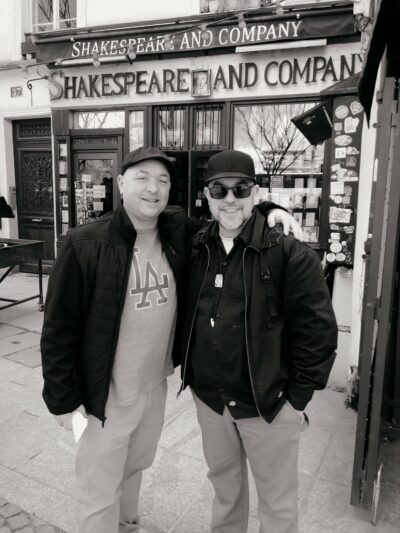By Eric Valentine

I got word today that Shakespeare & Company—a landmark English bookstore on the left bank of the Seine River in Paris and frequented by many then-aspiring writers such as Ezra Pound, Ernest Hemingway, and James Joyce—was struggling financially thanks to COVID. So I bought a book from the boutique enclave of hard covers and first-editions online, a small gesture of appreciation and support. It’s a book called Germany: Memories of a Nation, written by Neil MacGregor.
It took me two seconds to make that decision after seeing just one news item. But in months of being asked online for donations to a variety of political campaigns, I’ve always decided against it. I have 14 billion reasons why.
According to the Center for Responsive Politics, $14 billion is what was spent on the 2020 presidential election and other congressional races across the United States. Imagine if that money was spent on something else, like PPE for frontline workers or small business loans for HVAC upgrades. It’s an amount that could do more than fill a few potholes across the Valley, that’s for sure.
Or, perhaps that spending is the boost the economy needs. After all, someone has to make the commercials, print the signs, write the speeches, and put gas in the tour buses. And, the Supreme Court of the United States has ruled that spending money on elections is an act of free speech, protected by Amendment 1 of the U.S. Constitution.
I disagree.
Money expenditures are not an act of free speech; they are an act of free will. If I have $100 to my name and you have none, that doesn’t give me more freedom of speech. It gives me more freedom of will. The First Amendment protects free speech, not free will. If it did, we could do far worse than yell fire in a crowded theater.
So, my will for this country as we now—at least begin to—put the 2020 election to bed, is for us to find a way where no private money is allowed to fund public campaigns. In a nutshell, it would mean we would no longer have in office the best politicians money can buy. A corporation, for instance, couldn’t fund someone’s campaign hoping for payback later. A wealthy person, for example, couldn’t outspend an opponent of lesser means. There would be some details to work out. Public television and radio would need to carry the load of allowing candidates air time. Candidates would have to abandon the use of websites and social media—too easy to let “commenters” promote fake information.
My solution wouldn’t solve everything. Nothing can. But it would be a start in the right direction, one that shifts power away from corporations (large ones not small businesses) and toward the people. Or not. But at least my form of charity would contribute to understanding the economics and history that affects politics, rather than the other way around.
